الواقع الافتراضي يتحسن بشكل أفضل ، لكنه يتحسن أيضًا أغلى. تم الإعلان عن أحدث سماعة رأس عالية الجودة من HTC في CES، Vive XR Elite ، يتبع كتاب قواعد لعب مشابه لـ Meta الأخير كويست برو، وربما شركة آبل الجهاز المنتظر أيضًا. إنه يثير سؤالًا: هل نحن مستعدون حقًا لارتفاع أجهزة الواقع الافتراضي التي تزيد قيمتها عن 1000 دولار؟ جهاز Vive XR Elite المستقل أنيق ويبدو أكثر إحكاما من Quest Pro ، ويحاول اختبار المياه الراقية.
The $1,099 headset, available for preorder Thursday, is arriving by the end of February — remarkably soon for a CES product. That means it’ll be available alongside Sony’s PlayStation 5-connected PSVR 2. While less expensive than the Quest Pro, the XR Elite’s price costs about as much as buying a PS5 and a PSVR 2 together. It’s far from an impulse purchase. But the hardware, which shrinks down the VR form to a pair of nearly glasses-like goggles and includes mixed-reality capabilities that could allow for AR apps, looks to solve how we’ll be using the metaverse for more in our lives than just games, simulation and fitness.
Read more: The Wonders of CES 2023: 3D Laptops, Wireless TV and Shape-Shifting Screens
No other company has really cracked this challenge either. But this Vive headset looks, more than ever, like it’s a stepping stone to future AR glasses.
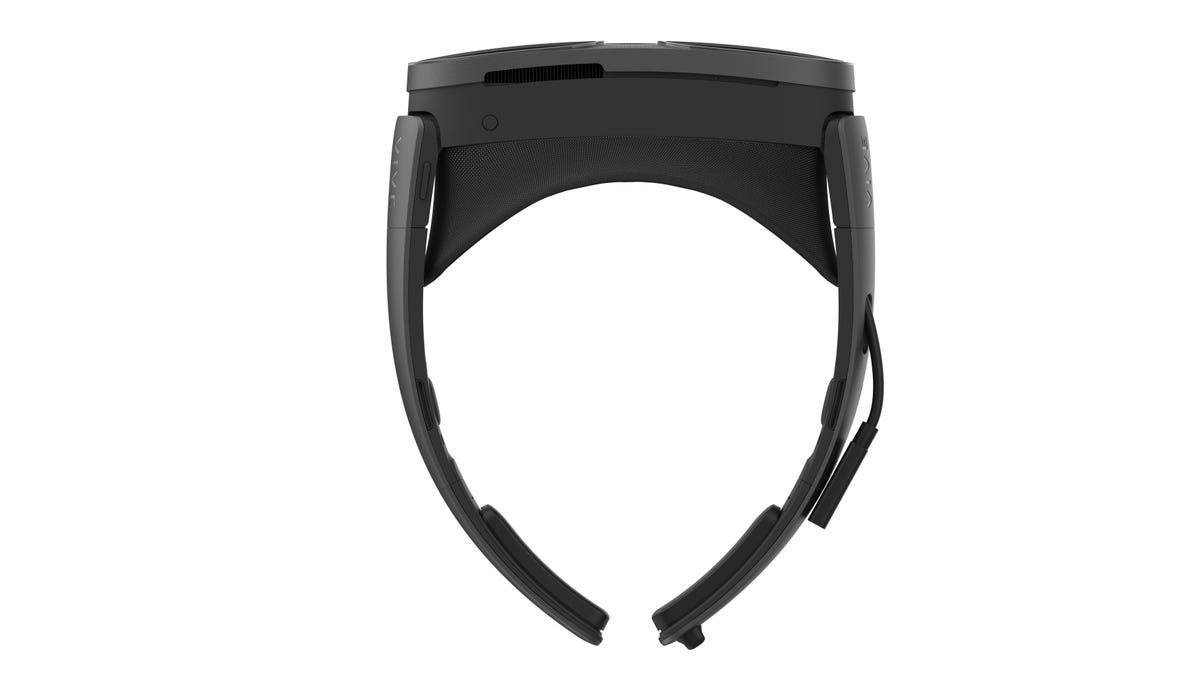
The XR Elite’s battery strap detaches, and glasses-like arms can be added on instead to reduce size further.
HTC
“We see where mixed reality is going to create a whole new suite of use cases. We know the virtual reality use cases are great. I think the AR side is amazing, too,” Dan O’Brien, HTC’s general manager of Vive, told me in a conversation at CES in Las Vegas. He acknowledged that HTC tried to make an AR device in 2015 but stopped because of the complications. O’Brien sees 5G and cloud computing as a key next step. “You need a 5G network, a really robust one to make AR go to scale — you need a cloud infrastructure to deliver to those types of wearables.”
The XR Elite is primarily a standalone VR headset, and it looks like an impressive piece of tech: It has a familiar Qualcomm Snapdragon XR2 chip much like the Meta Quest 2, Quest Pro and Vive’s existing business-focused Focus 3. But it adds a higher-resolution 110-degree field of view, LCD displays with 2K resolution per eye that can run at 90Hz. There’s also a boosted 12GB of RAM along with 128GB of storage. It can connect to PCs to run SteamVR or HTC’s VivePort software, or connect with Android phones. But its potential as a bridge to AR experiences seems like the most impressive feature.
Those are just specs, though. The XR Elite is a VR headset with a similar proposition to previous models, but with expanded capabilities. Its compact size is the most surprising part: At 340 grams, it’s less than half the weight of the Quest Pro. The rear hot-swappable battery gives about two hours of life. It gets even smaller by unclipping the back battery strap and adding glasses arms that can turn the headset into a modified pair of VR glasses, which could just plug into an external USB-C charger or battery for power. It’s small enough to fit in a compact carrying case tube.
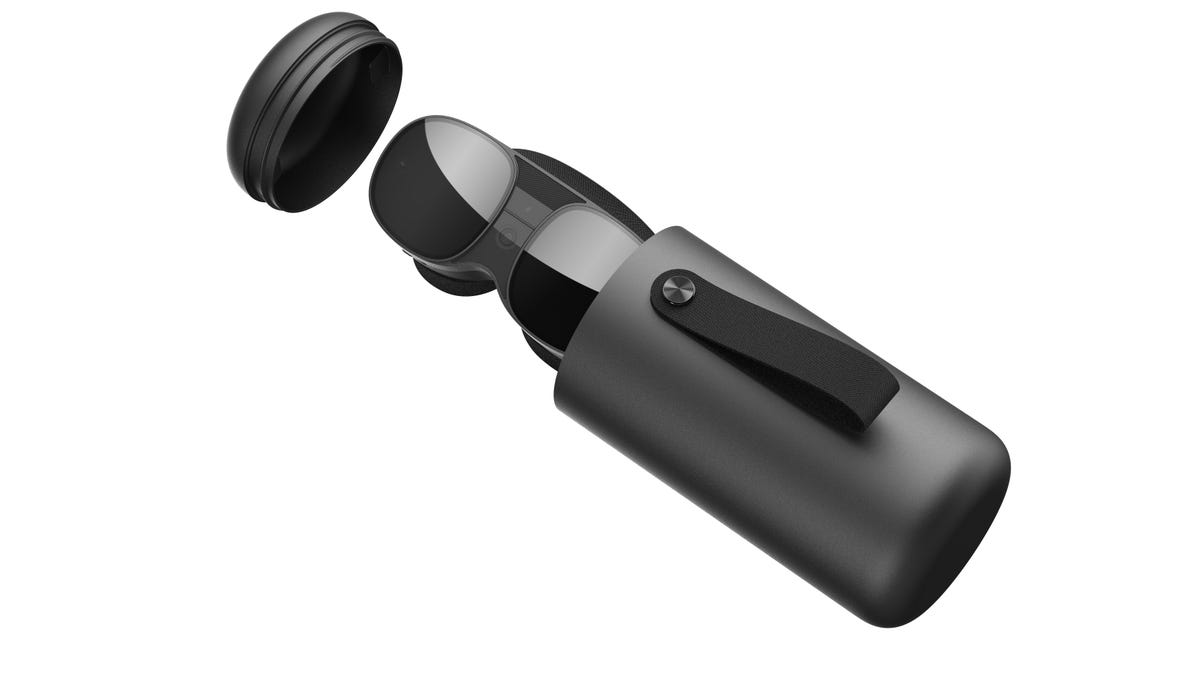
The XR Elite in its carrying case, which looks more portable than any other VR headset I’ve seen.
HTC
But that compact size comes with a twist: Instead of fitting on top of glasses, the XR Elite uses adjusting dials, or diopters, which can change the lens prescription on the fly without you needing to wear glasses at all — for some people, at least. The diopters only accommodate up to a -6 prescription, but my own vision is over -8 for nearsightedness. It’s a challenge HTC faced with its even smaller Vive Flow phone-connected VR goggles, which also went for the glasses-free approach.
The XR Elite has a dedicated depth sensor on the front, along with color passthrough cameras that can eventually show mixed reality-experiences, similar to the Quest Pro. The Quest Pro doesn’t have the Elite’s added depth sensor, but it accommodates for that with its onboard cameras.
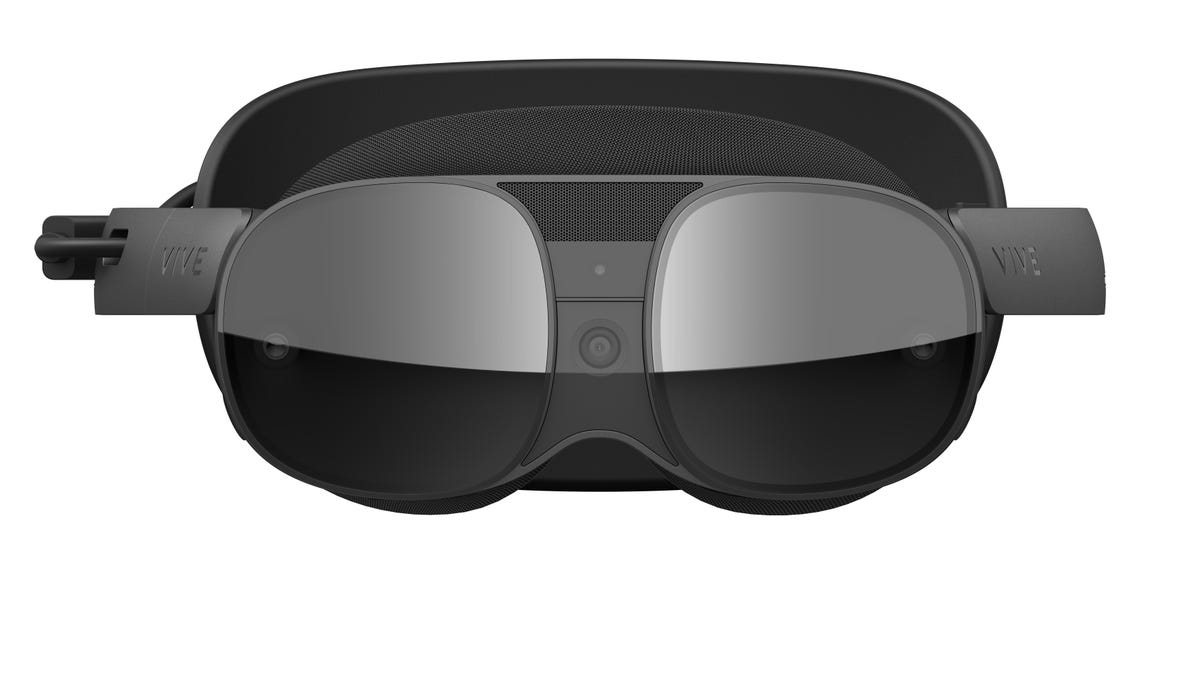
A front camera (part of an array for movement tracking), and also a depth sensor for measuring spaces and layering AR.
HTC
The XR Elite could also adapt further. While the hardware doesn’t have its own eye-tracking tools onboard, eye- and face-tracking add-ons are coming later in the year. The headset’s controllers are the same standard ones that HTC has for the Vive Focus 3, which follow the same game controller-like playbook as the Meta Quest 2 and others. But HTC already has its own line of wearable VR body trackers and wristbands, and more accessories could follow.
O’Brien acknowledges that the sticky, mass-market appeal of VR and AR aren’t here yet. “I think developers will be using cloud computing, being able to actually get their content into the metaverse much faster, and much more efficiently,” he said. “If you think about the streaming business, these streamers, these TikTokkers, all these kids that create the really compelling, fun experiences that just keep drawing you back in? That’s not in the metaverse today, We need to create more opportunities for less sophisticated immersive content creators to get involved, and then create more [of an] اقتصاد.”
يرى O’Brien الحوسبة السحابية ، مدفوعة بقدرة تتبع العين على ضغط بيانات الرسومات عبر تقنية تسمى التقديم المرن ، كطريقة لتقليص المعالجات في نهاية المطاف على سماعات الرأس المستقبلية ، وتصغيرها وتناسب عددًا أكبر من الأشخاص.
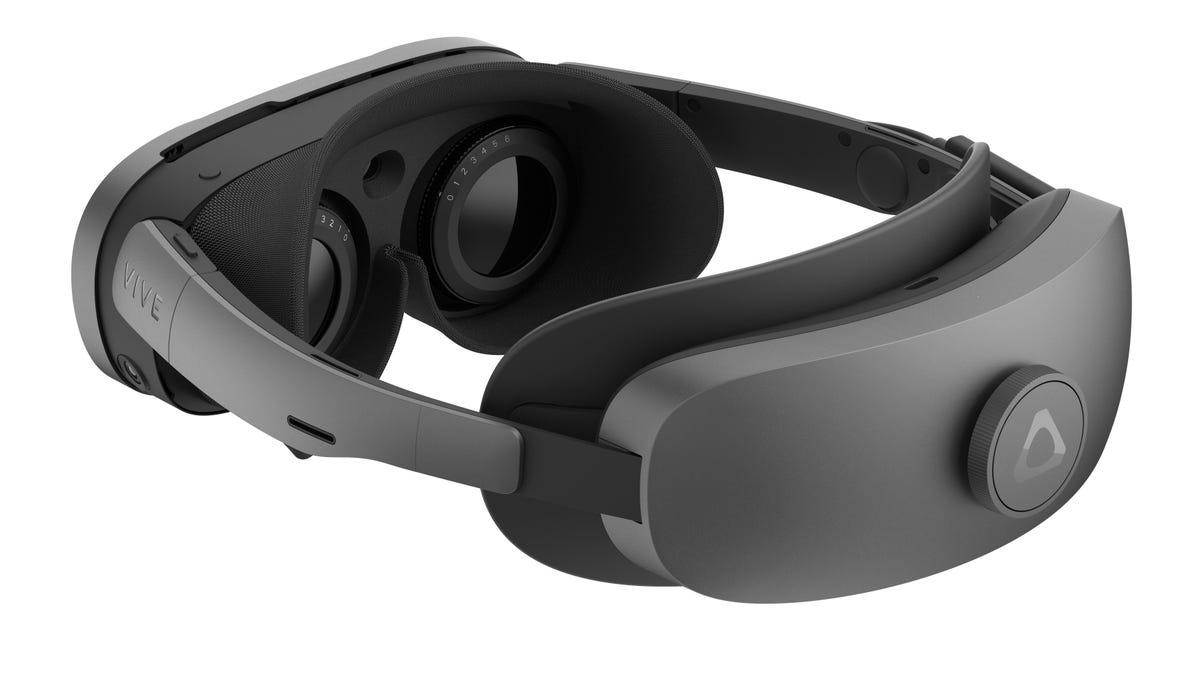
لا تعمل سماعة الرأس مع النظارات: بدلاً من ذلك ، تحتوي على أقراص ديوبتر لضبط الوصفات الطبية بالداخل.
HTC
ما يقلقني هو خيارات الوصفات الطبية المحدودة في الوقت الحالي. يقول أوبراين: “مع وصولنا إلى نظارات أخف وزنًا ، من المحتمل أن يجلب الناس المزيد من وصفاتهم الطبية إليها في المستقبل”. “في الوقت الحالي ، ما يمكننا القيام به هو مجرد محاولة معالجة غالبية السوق بأفضل ما يمكننا باستخدام هذه الأنواع من التغييرات في الإعدادات ، لأنه يتعين علينا أن نجعل سماعات الرأس أخف وزناً. وعلينا أن نجعلها أكثر راحة. وإذا ستحصل على مناطق راحة العين الكبيرة هذه داخل سماعات الرأس هذه ، وستظل كبيرة حقًا “.
يرى O’Brien أن وحدات التحكم VR المضمنة قد تصبح اختيارية يومًا ما ، وربما تُترك خارج الصندوق وشرائها بشكل منفصل ، ولكن ليس بعد. تتبع اليد ليس موثوقًا بدرجة كافية. “يجب أن يحدث تتبع اليد تقدمًا هائلاً خلال العامين أو الثلاثة أعوام القادمة حتى يصبح حقًا أكثر من أداة إدخال طبيعية.” لكن أوبراين يقترح أنها طريقة للحصول على سماعات مستقبلية بأسعار معقولة. “إذا كان بإمكان المستخدم ارتداء النظارات والتفاعل مع المحتوى [with their hands]، سيكون هذا منتجًا أقل تكلفة بكثير “.

تم اختيار هذا المنتج كواحد من أفضل منتجات CES 2023. تحقق من الآخر الفائزون بجوائز Best of CES 2023.

“مدمن السفر. فخور بالتواصل. خبير مستقل في ثقافة البوب. رجل أعمال.”

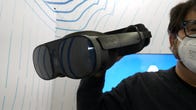




More Stories
هذا الشاحن المصنوع من GaN بقوة 100 واط رقيق وقابل للطي
كو: ترقية ذاكرة الوصول العشوائي إلى 12 جيجابايت في العام المقبل ستقتصر على iPhone 17 Pro Max
تعود Verdansk أخيرًا إلى Call of Duty Warzone، والمعجبون سعداء بذلك